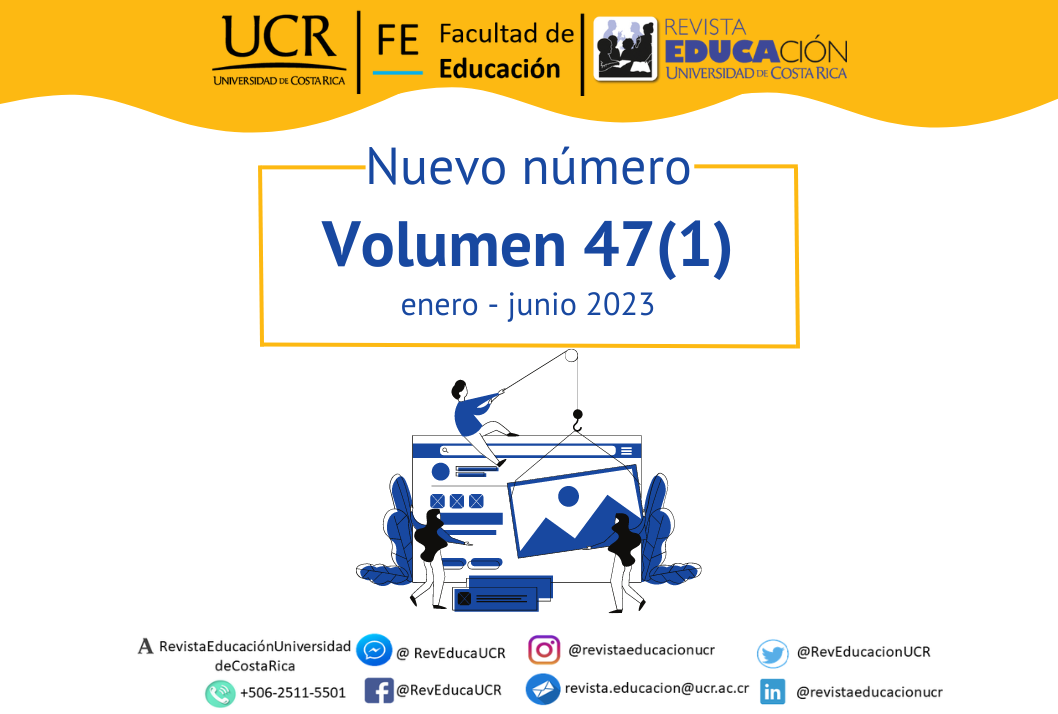Abstract
An indicator of the quality of university training is the relevance of the knowledge that is structured in the students. The current trend suggests the predominance of an integral vision. This research aimed to design and validate a measurement scale, for the purpose of identifying the main types of knowledge among university students, on two subscales: 1) disciplinary training and 2) social and personal training. The instrument was based on the theoretical proposal of dispositional structures. The sample consisted of 308 university students from both public and private schools in Toluca Valley, aged between 17 and 30. The authors processed the data through both exploratory factor analysis and Cronbach's Alpha. The results show an accumulated variance for the first scale of 44,207, explained by three factors; and for the second scale of 39,719, explained by two factors: both being consistent with the theoretical structure. The congruence is .858 and .806 respectively, which shows that the instrument has construct validity and internal consistency. Hence, the researchers concluded that the scale can be used in future higher education research. It is presented in two subscales so that they can be applied independently. However, it is recommended to apply both to have a more solid consistency of the comprehensive training of university students.
References
Acebedo, M. J., Aznar, I. y Hinojo, F. J. (2017). Instrumentos para la Evaluación del Aprendizaje Basado en Competencias: Estudio de caso. Información tecnológica, 28(3), 107–118. https://www.scielo.cl/scielo.php?script=sci_arttext&pid=S0718-07642017000300012
Araya, I. (2008). La formación dual y su fundamentación curricular. Revista Educación, 32(1), 45-61. https://doi.org/10.15517/revedu.v32i1.523
Ávila, G. P. y Riascos, S. C. (2011). Propuesta para la medición del impacto de las TIC en la enseñanza universitaria. Educación y educadores, 14(1), 169 – 188. https://www.redalyc.org/articulo.oa?id=83418921010
Barbón, O., López, C. y Figueredo, D. (2014). Cinco saberes para la formación de la competencia científico-investigativa con enfoque de profesionalización pedagógica. Revista Cubana de Reumatología, 16(2), 253–258. https://revreumatologia.sld.cu/index.php/reumatologia/article/view/333
Delgado, R., Vargas, R. M., Vives, M., Luque, P. y Lara, L. M. (2005). Educación para el conocimiento social y político. Pontifica Universidad Javeriana.
Delors, J. (1996). Los cuatro pilares de la educación. En J. Delors (Comp.). La Educación encierra un tesoro. (pp. 91-103). Ediciones UNESCO.
Escobar, J. y Cuervo, A. (2008). Validez de contenido y juicio de expertos: una aproximación a su utilización. Avances en medición, 6, 27–36. https://www.researchgate.net/publication/302438451
Ferry, G. (1990). El trayecto de la formación. Los enseñantes entre la teoría y la práctica. Paidós educador.
Ferry, G. (1997). Pedagogía de la Formación. Novedades Educativas y Universidad Nacional de Buenos Aires.
Ferry, G. (2002). Los enseñantes entre la teoría y la práctica. Paidós.
Filloux, J. C. (1996). Intersubjetividad y formación (El retorno sobre sí mismo). Novedades Educativas y Universidad Nacional de Buenos Aires.
García, L., García, M. y Ruiz, M. (2009). Claves para la educación: Actores, agentes y escenarios en la sociedad actual. NARCEA.
Hernández, R., Fernández, C. y Baptista, P. (2014). Metodología de la investigación. (6ª ed.). Mc Graw Hill.
Hewitt, N. y Barrero, F. (2012). La integración de los saberes: una propuesta curricular para la formación en investigación en la educación superior. Psychologia. Avances de la disciplina, 6(1), 137–145. https://dialnet.unirioja.es/servlet/articulo?codigo=4924046.
Honore, B. (1980). Para una teoría de la formación. Dinámica de la formatividad. Narcea.
Lezcano, L. y Vilanova, G. (2017). Instrumentos de evaluación de aprendizaje en entornos virtuales. Perspectiva de estudiantes y aportes de docentes. Informe Científico Técnico UNPA, 9(1), 1–36. https://dialnet.unirioja.es/servlet/articulo?codigo=5919087.
Montero, I. y León, O. G. (2002). Clasificación y descripción de las metodologías de investigación en Psicología. International Journal of Clinical and Health Psychology, 2(3), 503–508. http://www.redalyc.org/articulo.oa?id=33720308.
Mora, J. G. (2003). Psicología del aprendizaje. Teorías I. Editorial Progreso.
Morales, P., Urosa, B. y Blanco, A. (2003). Construcción de escalas de actitudes tipo Likert. La Muralla.
Tejada, J. y Ruiz, C. (2016). Evaluación de competencias profesionales en educación superior: Retos e implicaciones. Educación XXI, 19(1), 17-38. https://www.redalyc.org/articulo.oa?id=70643085001.
Torres, A., Zanatta, E. y Yurén, M. (2019, noviembre). Formación universitaria: transición de aprendizajes a saberes. [Sesión de Congreso]. Ponencia presentada en el XV Congreso Nacional de Investigación Educativa COMIE-2019, Consejo Mexicano de Investigación Educativa. (pp. 1-10). Acapulco, México. https://www.comie.org.mx/congreso/memoriaelectronica/v15/doc/0387.pdf
Yurén, M. T. (2000). Formación y puesta a distancia. Su dimensión ética. Paidós Educador.
Yurén, T., Navia C. y Saenger, C. (2005). Ethos y autoformación del docente. Análisis de dispositivos de formación de profesores. Pomares.
##plugins.facebook.comentarios##

This work is licensed under a Creative Commons Attribution-NonCommercial-NoDerivatives 3.0 Unported License.
Copyright (c) 2023 Revista Educación - Journal of Education



